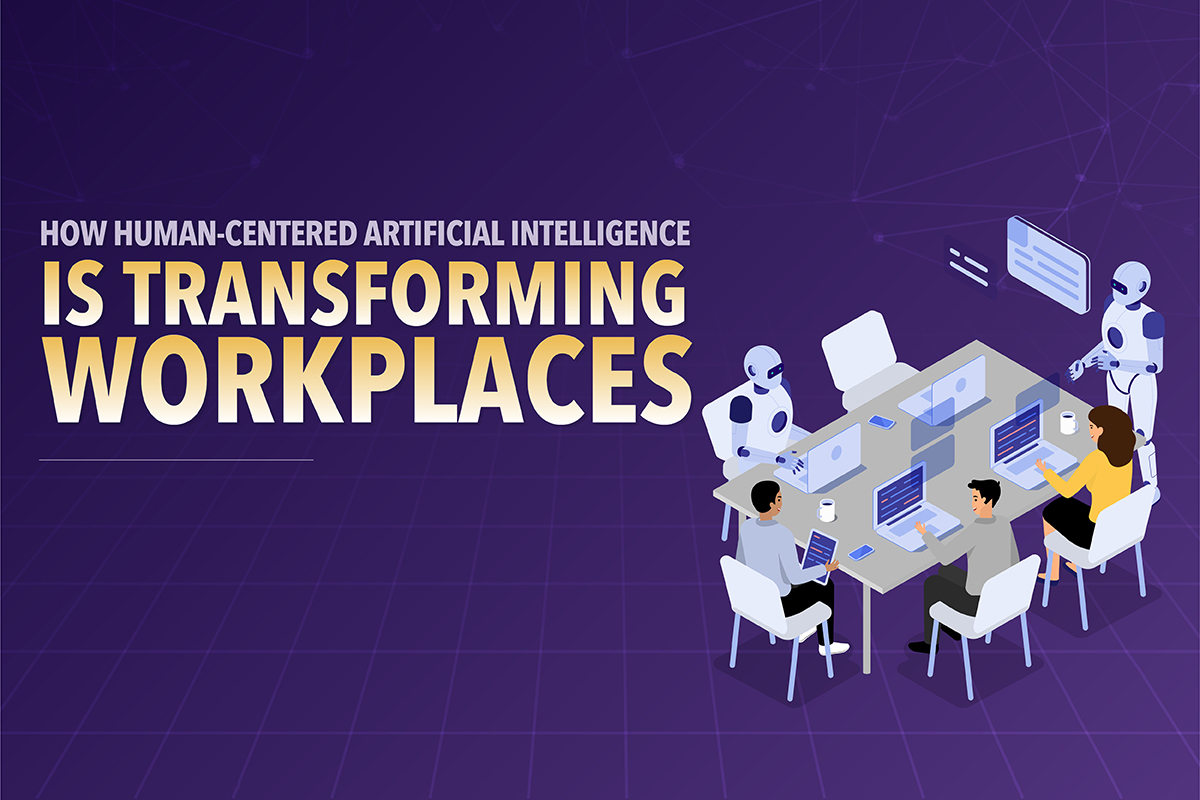What Is Organizational Psychology?
Written by:
East Carolina University®
• Dec 20, 2023

What Is Organizational Psychology?
The field of psychology is broader than most people realize, with branches devoted to behaviorism, evolution, social dynamics, and many other areas of focus. Psychology is broadly defined as the study of behavior and the mind. As the field has expanded and become more multifaceted, it has resulted in the emergence of subdisciplines that explore their own lane.
One of the subdisciplines that pertain to workplace culture is organizational psychology, which is also known as industrial-organizational psychology (I/O psychology). Organizational psychology is what examines the people in the workplace by applying the principles of psychology.
Although I/O psychology is relatively new, it has already proven to be effective in improving workplace morale, employee productivity, and overall quality of life. Those who are considering a career as an organizational psychologist should familiarize themselves with this line of work and explore their degree options, such as a Bachelor of Arts (BA) in Psychology program.
Organizational Psychology Defined
What is organizational psychology? What differentiates it from other branches? I/O psychology studies the behavior of people in a workplace or professional environment. The practice is used to assess an organization’s workforce at the individual and group levels; this reveals the overall organizational dynamics within the workplace.
Organizational psychology is informed by basic psychology principles, meaning the behavior and feelings of a workforce can be explained by emotional factors, workplace motivators, reward systems, and the environment. By applying I/O psychology in the workplace, organizations can:
-
Improve the relationship between their workforce and management
-
Help teams work more cohesively
-
Help human resources (HR) with its recruitment and hiring efforts
-
Gain a better understanding of what truly motivates employees
-
Reduce employee turnover and workplace disputes
-
Create a positive workplace environment with high employee morale
-
Improve workplace productivity
How Organizational Psychology Is Applied in Professional Contexts
Organizational psychology is what business leaders rely on to solve problems within their organization relative to hiring, training, teamwork, employee productivity, and other complex issues. In simple terms, a happy workforce is generally more productive and efficient than an unhappy one. This means that it is in the best interests of the organization to address any workplace challenges that may be hindering its employees at the individual and group levels.
I/O psychologists examine the inner workings of an organization to discover where deficiencies and pain points lie. Common applications include the following:
-
Studying employees throughout all levels of the organization to identify inefficiencies and redundancies that hinder productivity
-
Identifying absent skills and competencies within a workforce that are essential to job performance
-
Gaining a clear understanding of the company culture that is factored in during the recruitment and hiring process
-
Observing employees and their behaviors to accurately gauge workplace satisfaction, work-life balance, and stress levels, and then recommending organizational changes that mitigate turnover, burnout, and stress
-
Learning what motivates employees, and then using the findings to develop reward systems and methods of motivation that are effective
Using Psychology for Organizational Success
One of the main reasons that organizations are becoming more reliant on I/O psychology is that it can be applied at all levels of an organization. It is effective yet broad in scope, meaning it can be applied to recruitment and hiring processes, employee training and onboarding, upskilling and continuing education efforts, and interdepartmental collaboration.
Furthermore, I/O psychology has proven effective when applied to managerial development and teaching essential leadership skills. Organizations have also seen improvements in the work-life balance of their employees and increased morale levels due to I/O psychology’s applications in the workplace.
How to Become an I/O Psychologist
Those who are interested in pursuing a career in I/O psychology must complete a series of educational steps, followed by obtaining licensure and credentialing. The process is as follows:
-
Earn a bachelor’s degree in psychology or related field.
-
Earn a master’s degree in psychology to qualify for roles in HR, business consultancy, and organizational management. Individuals can work full time or pursue an internship while pursuing their next degree.
-
Gain hands-on experience. Although this step is optional, many aspiring I/O psychologists find that entering a professional environment is beneficial for developing their skills and establishing valuable business connections. This may come in handy later when developing a resume with professional references.
-
Earn either a Doctor of Philosophy (PhD) or a Doctor of Psychology (PsyD) in psychology. A PhD is best for those who are interested in research roles. A PsyD is best for those who are interested in working directly with clients.
-
Obtain licensure through the Society for Industrial and Organizational Psychology (SIOP) to practice as an I/O psychologist.
Apply Your Skills in an Organizational Setting
Organizational psychology is what helps companies identify their shortcomings so that they may realize the full potential of their workforce and leadership. By applying the principles of psychology in a professional environment, organizations learn how to motivate their employees, reduce turnover and workplace disputes, and improve teamwork and overall morale.
Those who are interested in joining the thriving field of I/O psychology are encouraged to explore their educational options, such as the BA in Psychology program offered at East Carolina University®. Conveniently conducted in an online learning environment, students learn all the most important principles and concepts of psychology that are essential to their career paths.
Learn more about the program so that you can see how a psychology degree from ECU supports your professional goals.
Sources:
American Psychological Association, I/O Psychology Provides Workplace Solutions
American Psychological Association, Industrial and Organizational Psychology
American Psychological Association, Pursuing a Career in I/O Psychology
Betterteam, “What Is Industrial Psychology?”
Business News Daily, “What Is Industrial-Organizational Psychology?”
Houston Chronicle, “What Are the Benefits of Organizational Psychology Within the Workplace?”
Indeed, “FAQ: What Is Industrial and Organizational Psychology?”
Indeed, How to Become an Industrial Psychologist Step by Step
Verywell Mind, “The Basics of Industrial-Organizational Psychology”


